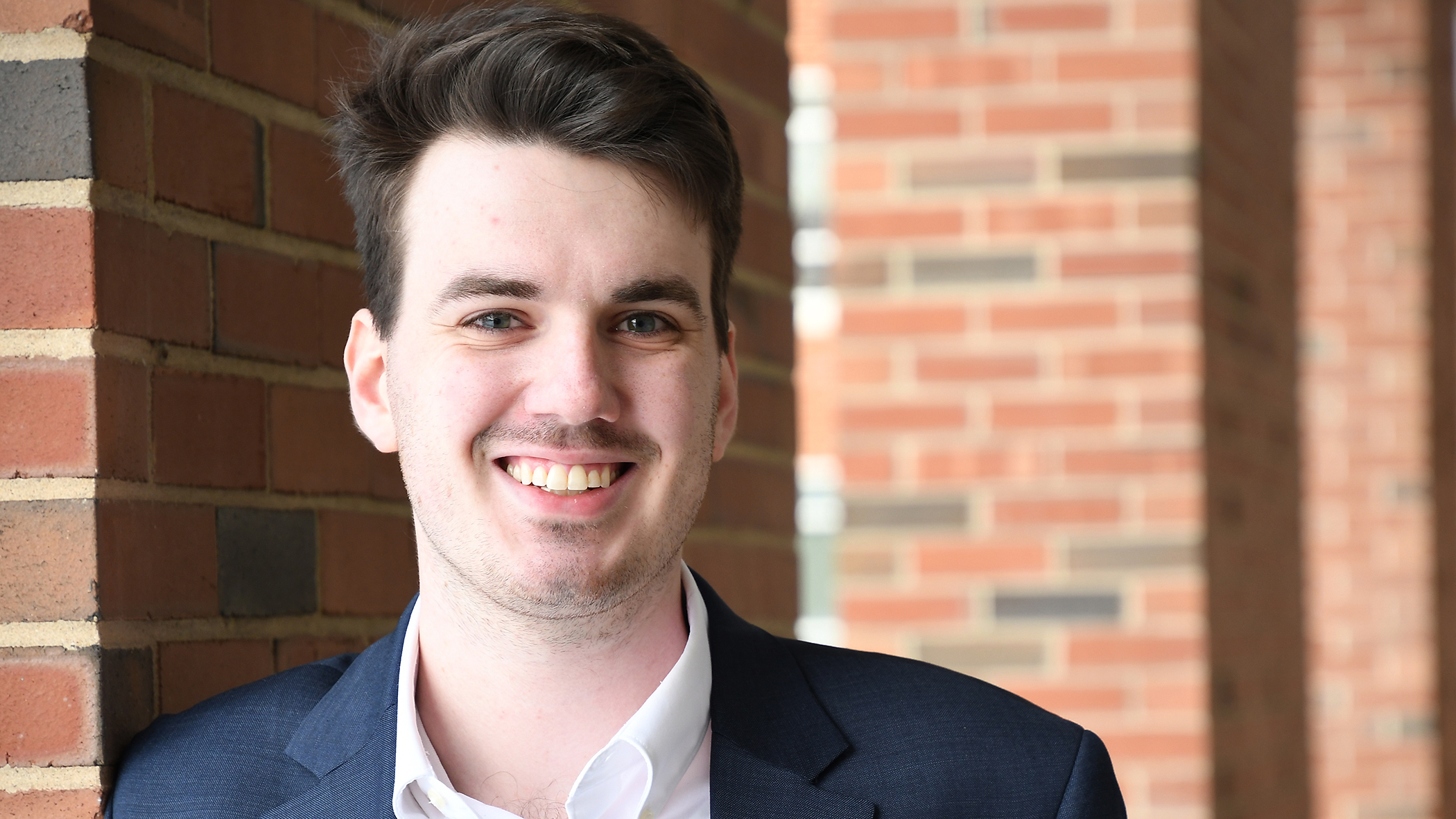Friday, Mar 23, 2018
Jonathan Lewis '16, '17 graduated from University's homeland security program
by Rachel Stengel '14
Just a few short months after graduating, Jonathan Lewis '16, '17 can now add co-author of a case study by a major U.S. counterterrorism research organization to his resume. The case study is the fourth installment of the "Beyond the Caliphate" series, which aims to identify activity linked to and inspired by ISIS outside of its physical territory and is produced by the Combating Terrorism Center (CTC) of the U.S. Military Academy at West Point.
Lewis was tasked as a CTC intern with analyzing terror attacks, arrests and plots in Belgium that were either linked to or inspired by ISIS from June 2014 to present day. While working at his second internship in Israel at the International Institute For Counter-Terrorism (ICT), the Master of Arts in homeland security graduate was invited to collaborate with the CTC's Director of Strategic Initiatives Don Rassler and Belgian journalist Guy Van Vlierden, who specializes in terrorist issues, to author the case study.
Lewis' work has already received acclaim, according to Dr. Bryan Price, visiting assistant professor in the graduate homeland security program and CTC director. Price ensured the document was in the hands of one of the government's top intelligence officials. The day the publication came out Price was briefing CIA Director Mike Pompeo and gave him a copy.
"My hope is that the piece will provide insights to practitioners, researchers and the general population," Lewis says. "They can get a feel for the situation in Belgium and form a greater picture of what ISIS looks like today, how it's changed since 2014 and lay out some theories on what it will look like in the future."
The case study complements the CTC's three other studies on terrorist activity in Turkey, Southeast Asia and Morocco. The Belgium study concluded that the ISIS threat in the country is both international and homegrown, with an overwhelming majority of attacks or plots directly linked to ISIS operatives in Syria or Iraq. The few derivative incidents inspired by ISIS, but not directly related, can still help the organization maintain its relevance long term.
"The report hopes to give more information about an area that isn’t that well understood by a large group of people," Lewis says. "You want to look at ISIS and see how its reach, influence and capabilities have changed over time, especially today. There’s a lot of misinformation and incorrect assumptions being made about ISIS, generally regarding terrorism in terms of what it means to defeat a terror organization."
Lewis' entree into the world of counterterrorism is an example of two of the core categories of the University's Engaged Learning Program — guided research and internships. Lewis credits Price for steering his passion toward homeland security and helping him make connections nationally and abroad, which led to his internship opportunities.
"Dr. Price is one of the most influential professors I’ve had the pleasure of working with during my time at Rider," he says. "He has all the experience you could ask for. He’s the director of the CTC. He’s active military. He's also genuinely interested in seeing his students succeed."
Lewis is unsure which aspect of homeland security he would like to pursue, but knows it is the field he is meant to be in professionally.
"I see counterterrorism as my next step, whether that is in government, a research institution or a think tank in the private sector, or an international government or non-government organization," he says. "From when I worked with the CTC on the Belgium case study from my work in Israel at the ICT, there were a number of fascinating topics I researched and wrote about. There was never a time during my work in counterterrorism where I wasn’t looking forward to the next day's work."

